Are you guilty of tsundoku? And are your tsundokus out of control?
I’ll admit, I had no idea I was guilty of this! I’m doing the Story Skills Workshop with Bernadette Jiwa and Seth Godin, and this came up in one of the calls.
Tsundoku means:
The practice of buying a lot of books and keeping them in a pile because you intend to read them but have not done so yet; also used to refer to the pile itself:
Cambridge Dictionary
Probably no surprise that in a group of people interested in storytelling, no one had a very minimal approach when it came to books.
I don’t even think mine was the most excessive. I do only have a small flat, but there’s a pile in the bedroom.
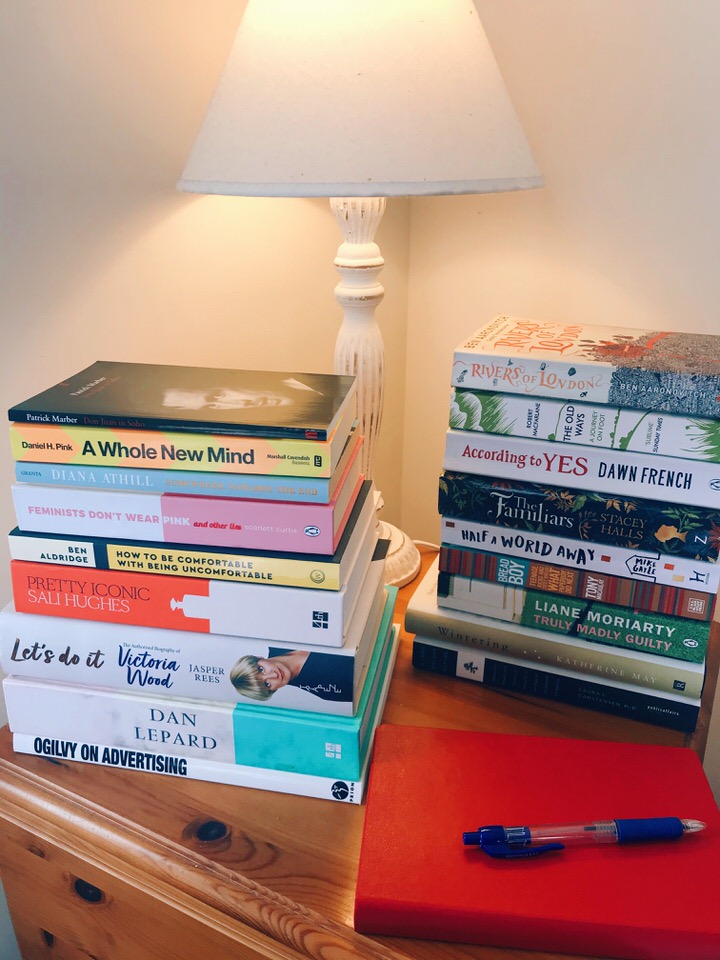
One in the lounge.
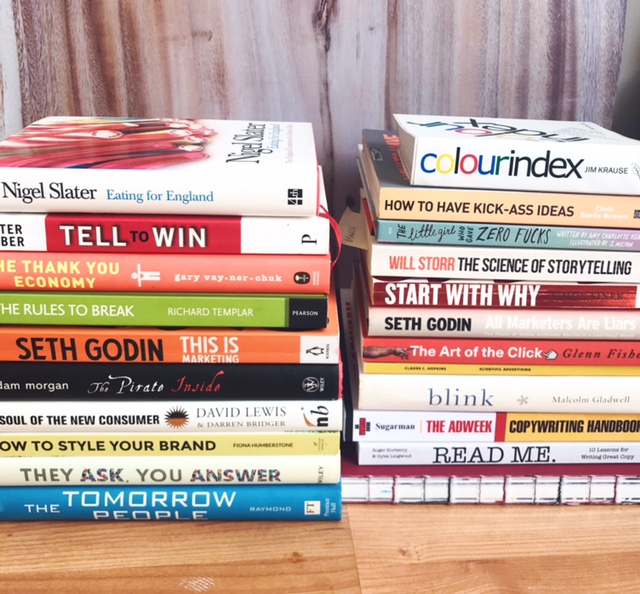
And kind of another one in the kitchen.

Yes I’ve read some of them
There doesn’t seem to be a word for part-read. Or for books that you dip into regularly. I’ve often got several books on the go, maybe one fiction, a couple of non-fiction, a cookbook that I’m giving a go.
What’s in everyone else’s pile?
I thought about sharing what the most common books were in the photos. The student intake is about 2,500 I think, and I’ve had conversations with people from Brazil, through to India, from the west coast of the US, through to eastern Europe.
But I’m not sure that’s where the richness is, the things that could be something new to consider, a different way of looking at things.
So, this is late but in line with my tradition of posting a Bank Holiday reading list, these are some that I’m thinking of making a whole new tsundoku for. Can’t vouch for any of them as yet, but they’ve piqued my interest. What grabs yours?
The Secret Life of Language by Simon Pulleyn
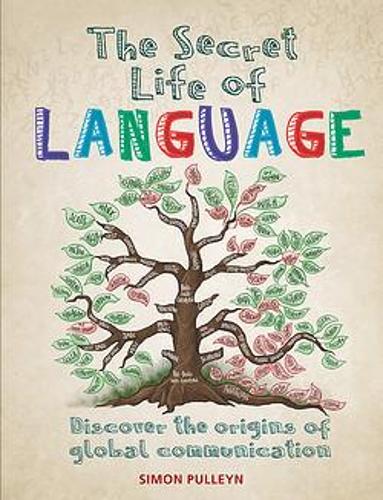
I don’t suppose I’ve often stopped to think about language evolves, although we inherently know that it does. We’ve only got to try and read Chaucer or see one of Shakespeare’s place in its original wording to know that’s not how we’d say things today.
And for any of you with children or teenagers, you’ll have those bemused moments of not knowing a word, or knowing a word but not understanding how it can be the right word in the context of the conversation.
Stories that Sell by Casey Hibbard
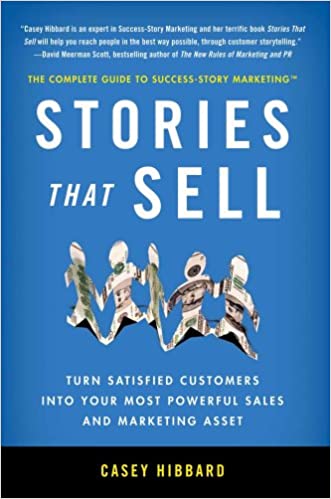
I spend a lot of time helping people craft stories that will help them sell more. I imagine as you dig into this, you’ll find that stories that sell are the ones that pull you in, that make an emotional connection. It won’t be about writing a script for selling double glazing over the phone.
If it is, it won’t be on my tsundoku for long!
The Fortune at the Bottom of the Pyramid by C K Prahalad
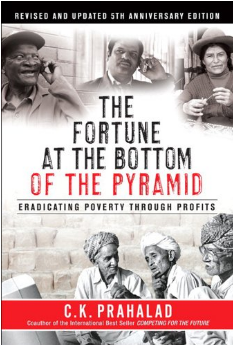
I’ve worked with several businesses that had a purpose beyond profit, so this book intrigues me. Looking at how businesses have been working to eradicate poverty amongst the world’s several billion poorest people but by building and profiting from new markets. It was last updated in 2009, so as we’re 11 years on I’d be interested to know how things have progressed, particularly after the year we’ve all just had.
Do the Work by Steven Pressfield
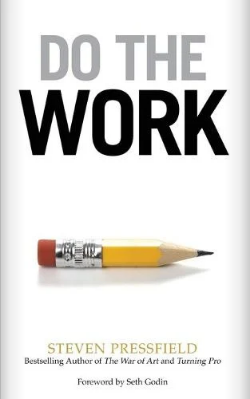
I love the subtitle to this: overcome resistance and get out of your own way. How many of us need to do the latter? It’s often our own beliefs that hold us back. Certainly working for myself, I’ve found that to be true; it probably was in my corporate life too.
I got a bit distracted from the tsundoku by the scenery in the background. This particular student lived up near the Rockies, stunning snow-covered backdrop to their books.
In the Company of Women by Grace Bonney
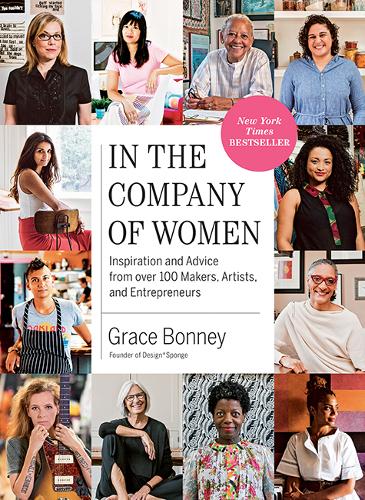
I love to hear other people’s stories, get to understand the challenge they’ve faced as they’ve made something happen in their lives. And I’m always grateful for the company of the women I call friends, colleagues, advisors and mentors, so this would be something to dip in and out of for me.
50 Ways to Yay! by Alexi Panos
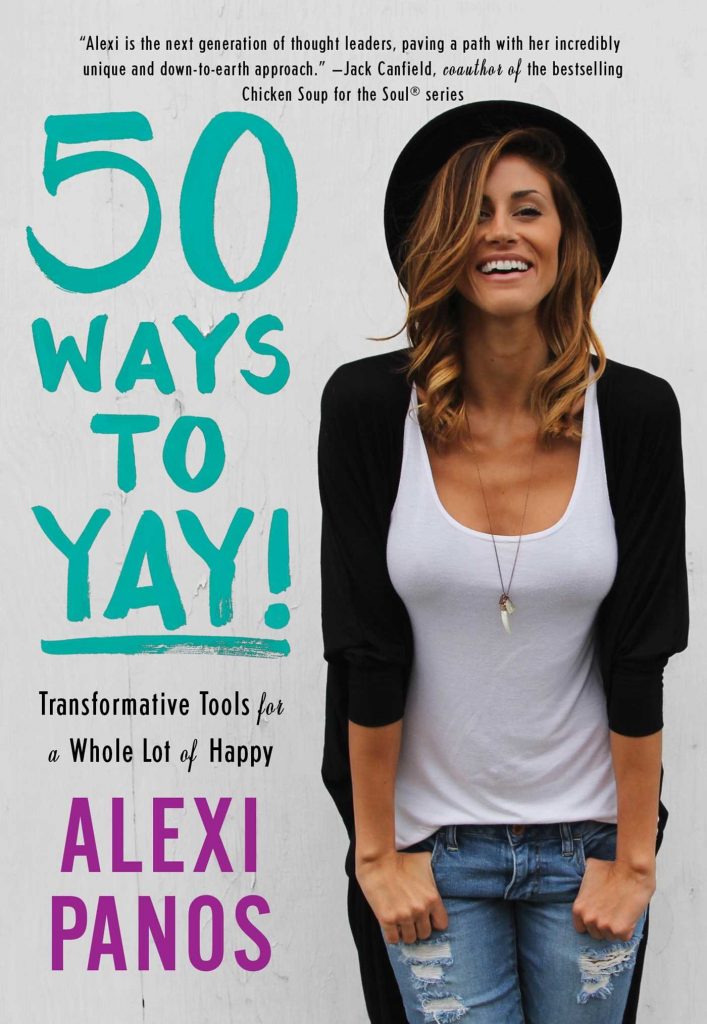
I’ll be honest, there’s no way I’d pick up a title like this. I’ve been intrigued by my fellow students from the US, as their use of language is so different. I’ve worked with lots of Americans over the years, perhaps it’s just because I haven’t for a while or that the words are there in black and white on the screen.
So I might be tempted to reserve my judgement, put aside my prejudice against things a bit woo woo, and try and see what they might have seen. Yay for me!
Walkable City by Jeff Speck
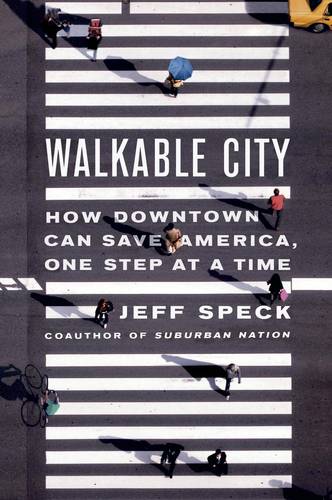
I think one of the impacts of the current pandemic is a rethinking of our urban spaces, what we prioritise. I love to walk everywhere, and love strolling around a city or town, just having a good look for the unexpected. Which when you don’t know a place is easy, but even when you do, I think you can be surprised at what you find.
I’m really encouraged by some of the conversations about people over cars, green space over roads. It’ll be fascinating to see where it goes.
What’s on your pile?
I loved seeing what was on people’s piles around the world. As you can imagine, there was a lot of Simon Sinek, quite a few of Seth’s books and a smattering of Tom Peters still knocking around.
What’s on your pile? Are they waiting to be read, or what I call parallel reads? Always looking for good book recommendations.
